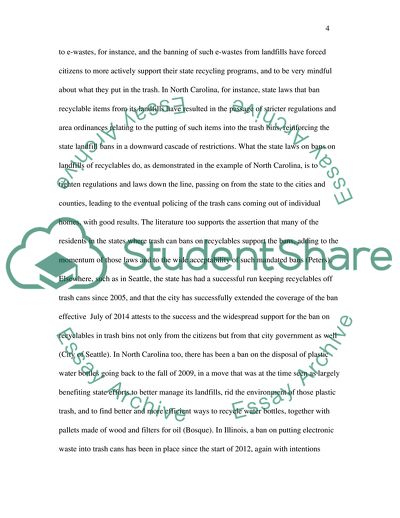Cite this document
(Discarding of Recyclables Case Study Example | Topics and Well Written Essays - 1750 words, n.d.)
Discarding of Recyclables Case Study Example | Topics and Well Written Essays - 1750 words. https://studentshare.org/law/1815888-argument-synthesis-on-should-portland-place-a-ban-on-throwing-away-recyclables-in-trashcans
Discarding of Recyclables Case Study Example | Topics and Well Written Essays - 1750 words. https://studentshare.org/law/1815888-argument-synthesis-on-should-portland-place-a-ban-on-throwing-away-recyclables-in-trashcans
(Discarding of Recyclables Case Study Example | Topics and Well Written Essays - 1750 Words)
Discarding of Recyclables Case Study Example | Topics and Well Written Essays - 1750 Words. https://studentshare.org/law/1815888-argument-synthesis-on-should-portland-place-a-ban-on-throwing-away-recyclables-in-trashcans.
Discarding of Recyclables Case Study Example | Topics and Well Written Essays - 1750 Words. https://studentshare.org/law/1815888-argument-synthesis-on-should-portland-place-a-ban-on-throwing-away-recyclables-in-trashcans.
“Discarding of Recyclables Case Study Example | Topics and Well Written Essays - 1750 Words”. https://studentshare.org/law/1815888-argument-synthesis-on-should-portland-place-a-ban-on-throwing-away-recyclables-in-trashcans.


